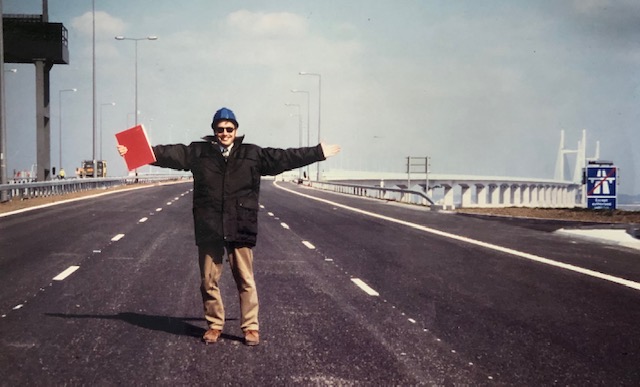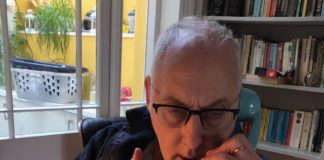- Massaging the truth - 27th February 2026
- ‘It’s the new economy, stupid…’ - 27th February 2026
- Eyes right… - 26th February 2026

As today rigged ‘elections’ are being held in Iran, which does not permit the kind of free investigative journalism that he pursues, here our Editor Phil Parry looks at the importance of allowing it in support of a functioning democracy.
Earlier he described how he was assisted in breaking into the South Wales Echo office car when he was a cub reporter, recalled his early career as a journalist, the importance of experience in the job, and made clear that the ‘calls’ to emergency services as well as court cases are central to any media operation.
 He has also explored how poorly paid most journalism is when trainee reporters had to live in squalid flats, the vital role of expenses, and about one of his most important stories on the now-scrapped 53 year-old BBC Wales TV Current Affairs series, Week In Week Out (WIWO), which won an award even after it was axed, long after his career really took off.
He has also explored how poorly paid most journalism is when trainee reporters had to live in squalid flats, the vital role of expenses, and about one of his most important stories on the now-scrapped 53 year-old BBC Wales TV Current Affairs series, Week In Week Out (WIWO), which won an award even after it was axed, long after his career really took off.
Phil has explained too how crucial it is actually to speak to people, the virtue of speed as well as accuracy, why knowledge of ‘history’ is vital, how certain material was removed from TV Current Affairs programmes when secret cameras had to be used, and some of those he has interviewed.
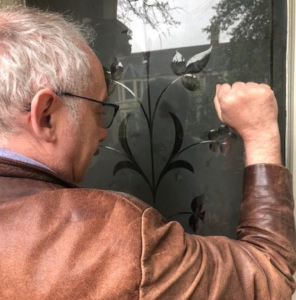
He has disclosed as well why investigative journalism is needed now more than ever although others have different opinions, how the coronavirus (Covid-19) lockdown played havoc with media schedules, and the importance of the hugely lower average age of some political leaders compared with when he started reporting.
Events miles away today, hold important lessons for journalists like me.
Only state media is allowed in Iran, and the ‘election’ to its ‘parliament’ is completely false, so nobody should be taken in by this ‘poll’.
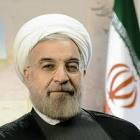
Unlike previous ones, when pragmatists and reformists could stand, all but ardent hardliners have been disqualified, including a former president, Hassan Rouhani. Hence loyalists will sweep the board.
Previously, the mullahs strove to get out the vote. Now they are so resigned to their unpopularity that they hardly bother. The election campaign has been Iran’s most lacklustre since 1979.
According to one survey more than half of Iranians are even unaware of the date, and many are expected to boycott it. Fearing a fiasco, the regime has denied foreign journalists visas.


Rather than assuaging popular anger, last year the government chose to execute demonstrators who had protested in 2022.
One of the country’s most popular songs is ‘Strange Times’ by Alireza Ghorbani. “The one who knocks on the door at night has come to kill the light”, he sings.
But as the regime purges its reformists, it shrinks to its inner core, and in its hunger to monopolise power, it has cut out both free journalism, and independent organs of the state.

Once a hybrid theocracy-cum-democracy, Iran has morphed into an absolute dictatorship with a wobbly base like others which only allow a state-controlled media, such as China, Russia, or North Korea.
Clerical quangos increasingly override parliament, reducing the latter to a talking shop. But a recent review leaked to the BBC Persian service shows haemorrhaging support for the theocrats.
It reveals that support for a separation of religion and state has jumped from 31 per cent in 2015 to 73 per cent today.
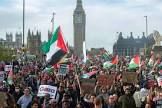
This repression also has other major repercussions, even in states which have democracy, and independent journalism.
Intelligence officers in the UK are monitoring an enormous upswing in dubious activity by the agents of Iran and its acolytes, targeting journalists.
The regime has been rattled by reports in the (free) foreign media about the huge protests which erupted across Iran, following the death in police custody of a young Kurdish Iranian woman for allegedly violating its strict Islamic dress code.

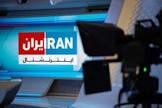
Their most prominent targets have been Farsi-language broadcasters like Iran International and BBC Persian.
Last year Iran International was forced temporarily to abandon its operations in Britain citing the threat from Iran, which had declared it a terrorist organisation.
In December a Chechen-Austrian man was sentenced to more than three years in jail for collecting information about the channel’s former offices.
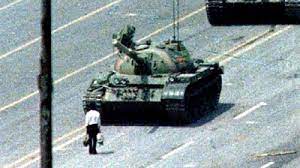
A one-time UK diplomat has declared: “If they (Iranian agents) wanted to kill people they could have done it”.
Unlike China or Russia which use their own (sometimes hapless) agents, Iran tends to employ people with other ‘businesses’, such as thieves or drug-runners.
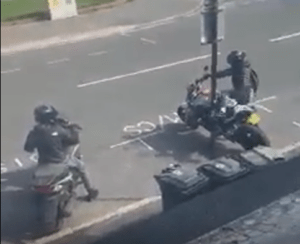
They have certainly scared people – all the Farsi-speaking journalists in London contacted by The Economist said they or their families in Iran had been intimidated.
One had been moved to a safe house after men on motorbikes had shouted death threats at his wife along with the address where she lived. Some have resigned.
All the journalists they spoke to had received visits from counter-terrorism police advising them to change their daily routines and to avoid visiting countries near Iran, including Turkey and the UAE.
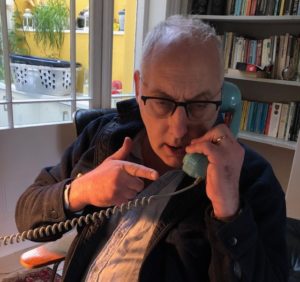
Some have received panic alarms (and I know how worrying this is, because I have had to have them installed in the past!).
“Yes-men are wonderful when things are calm, but they’re useless under crisis”, stated a political analyst who is frequently in Iran. “Without an opposition you lose the bridge to the people”.
Without a free media you lose that bridge too…
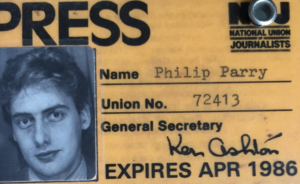 The memories of Phil’s astonishing decades-long award-winning career in journalism (including details of how a panic alarm had to be put in at his home) as he was gripped by the rare disabling condition Hereditary Spastic Paraplegia (HSP), have been released in a major book ‘A GOOD STORY’. Order it now!
The memories of Phil’s astonishing decades-long award-winning career in journalism (including details of how a panic alarm had to be put in at his home) as he was gripped by the rare disabling condition Hereditary Spastic Paraplegia (HSP), have been released in a major book ‘A GOOD STORY’. Order it now!

Regrettably publication of another book, however, was refused, because it was to have included names.










